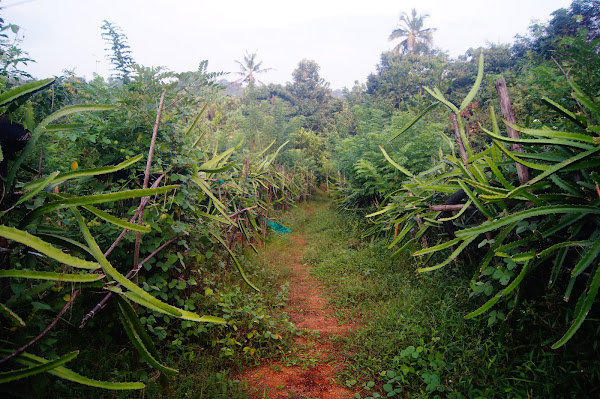Learning on nature's finest species; The bees
Day 1,Yeroor.
Some of the key highlights from the day :
- Learning the anatomy of a hive and the happenings in a hive
(The seasons in honey bee farming from the perspective of both the hive and the farmers)
Season of Expansion and Renewal
- Meaning for the Hive: In spring, the hive experiences a surge of activity as the queen bee ramps up egg-laying, leading to an increase in the population of worker bees. The hive focuses on gathering nectar and pollen from blooming flowers to build up food stores and expand the brood nest.
- Meaning for the Farmers: Spring signifies the beginning of the beekeeping season, bringing opportunities for hive management tasks such as inspecting colonies for health, providing supplemental feeding if necessary, and potentially splitting colonies to prevent swarming. It's a time of optimism and growth as farmers anticipate the productivity of their hives in the coming months.
Season of Abundance and Vigor
- Meaning for the Hive: During summer, the hive reaches its peak population and activity levels. Bees work tirelessly to collect nectar and pollen from abundant floral sources, resulting in the production of surplus honey. The hive focuses on storing resources for the upcoming winter months.
- Meaning for the Farmers: Summer represents the prime honey-producing season for beekeepers. It's a time of intense hive management, including honey extraction, monitoring hive health, and managing issues such as swarming. Farmers harness the energy and productivity of their hives to maximize honey yields and ensure the well-being of their colonies.
Season of Preparation and Transition
- Meaning for the Hive: In fall, the hive begins to prepare for the onset of winter. Egg-laying decreases, and the colony shifts its focus to consolidating food stores and reducing the size of the brood nest. Bees may also engage in behaviors such as propolizing hive entrances to insulate against the cold.
- Meaning for the Farmers: Fall is a critical time for beekeepers to assess hive health, harvest surplus honey, and prepare colonies for winter. Farmers may need to supplement bee food stores, provide insulation, and take measures to protect hives from pests and diseases. It's a period of readiness and anticipation as farmers ensure their hives are well-equipped to withstand the challenges of winter.
Season of Rest and Survival:
- Meaning for the Hive: Winter is a period of dormancy and reduced activity for the hive. Bees form a tight cluster to conserve warmth and conserve energy. The focus shifts to survival, as bees rely on stored honey and insulation to endure the cold months.
- Meaning for the Farmers: Winter is a time for beekeepers to monitor hive survival, provide supplemental feeding if necessary, and protect hives from extreme weather conditions. It's also a period for reflection and planning as farmers prepare for the upcoming beekeeping season, ensuring they're ready to capitalize on the opportunities of spring.
Each season in honey bee farming holds specific meaning for both the hive and the farmers, shaping their activities, priorities, and challenges throughout the year.
- Learning about the seasons in bee farming and of course the significance of the "Queen" bee.
The queen bee holds a pivotal role in the hive's dynamics and productivity. She is the sole reproductive female in the colony, responsible for laying eggs that give rise to the next generation of bees. Her pheromones regulate the behavior and harmony of the colony, influencing tasks such as foraging, nursing, and defense.
The significance of the queen bee extends beyond reproduction; she symbolizes the unity and stability of the hive. Her presence ensures the continuity of the colony, fostering resilience against environmental challenges and ensuring the efficient utilization of resources.
In essence, the queen bee epitomizes the vitality and functionality of the hive. Without her, the colony's social structure would collapse, leading to the eventual demise of the entire bee community. Thus, beekeepers prioritize the well-being of the queen bee, recognizing her indispensable role in sustaining the hive's prosperity and survival.
The second day training was continued by Shanavas J , Bee Keeper and bee farming expert, resource person, assigned by the state horticorp.
Image highlights from the day:
Images were shared through the Whatsapp community group formed following the training .
















































































Comments
Post a Comment